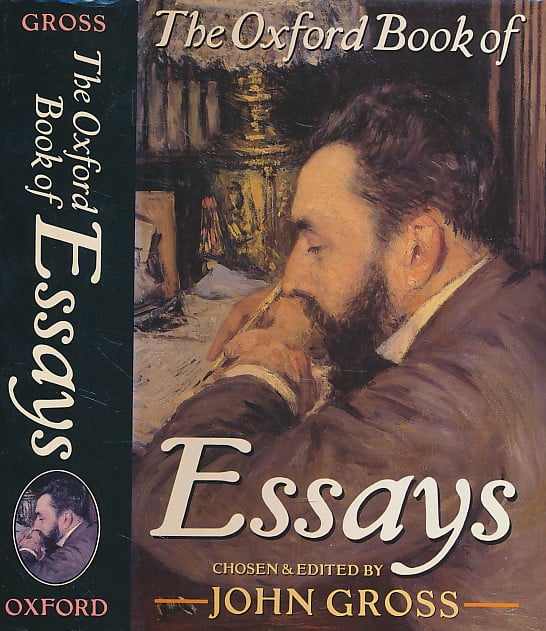The Oxford Book of Essays
€14,00
Nema na zalihi
| Težina | 1362 g |
|---|---|
| Format | 15 × 22 cm |
| Autor | |
| Izdavač | |
| Godina | 1991 |
| Broj stranica | 680 |
| Uvez | Tvrdi |
| Stanje knjige | Vrlo dobro |
When Montaigne developed the essay in the sixteenth century, he could not have imagined the power and longevity of his creation. He did not set up for a philosopher, wit, orator, or moralist, wrote Hazlitt, but he became all these by merely daring to tell us whatever passed through his mind. Ever since, writers have seized upon his example, and for over four hundred years we have encountered astonishing insights and breathtaking language by following what has passed through their minds, as recounted in the essay. And now some of the finest essays of all time have been gathered together by John Gross, former editor of The New York Times Book Review, in an outstanding new anthology. Ranging from the early 1600s through the 1980s, this sweeping collection includes 140 essays by 120 of the finest writers in the history of the English language. John Gross has collected classics and rare gems, representative samples and personal favorites, intimate essays and learned, serious reflections and hysterically funny satire, by both British and American writers. Here is Eveleyn Waugh, providing tips on how to move in Well-Informed Circles (Attribute all facts of common knowledge to personal information; for instance, do not say, ‘What a wet week it has been,’ but, ‘They tell me at Greenwich they have registered the highest rainfall for six weeks’); Ralph Waldo Emerson on conservatism and innovation; Ambrose Bierce on the horror of the characteristic American custom of promiscuous, unsought, and unauthorized introductions; Oscar Wilde on the critic as artist (It is only about things that do not interest one that one can give a really unbiased opion, which is no doubt the reason why an unbiased opinion is always absolutely valueless); Rose Macaulay on dinner parties; and James Baldwin, musing about what a remote Swiss village tells him about race in the wider world (Joyce is right about history being a nightmare–but it may be the nightmare from which no one can awaken. People are trapped in history, and history is trapped in them.). The authors Gross has gathered form a gallery of genius, all indispensable masters of rhetoric, from Samuel Butler to Samuel Johnson, from John Dryden to Ben Franklin, from Geoge Eliot to George Bernard Shaw, from E.B. White to Joan Didion. Including book reviews and travel sketches, history lessons and meditations, reflections on art and on potato chips, these essays sample four centuries of eloquence and insight in a collection that is at once immensely enlightening, edifying, and entertaining.
